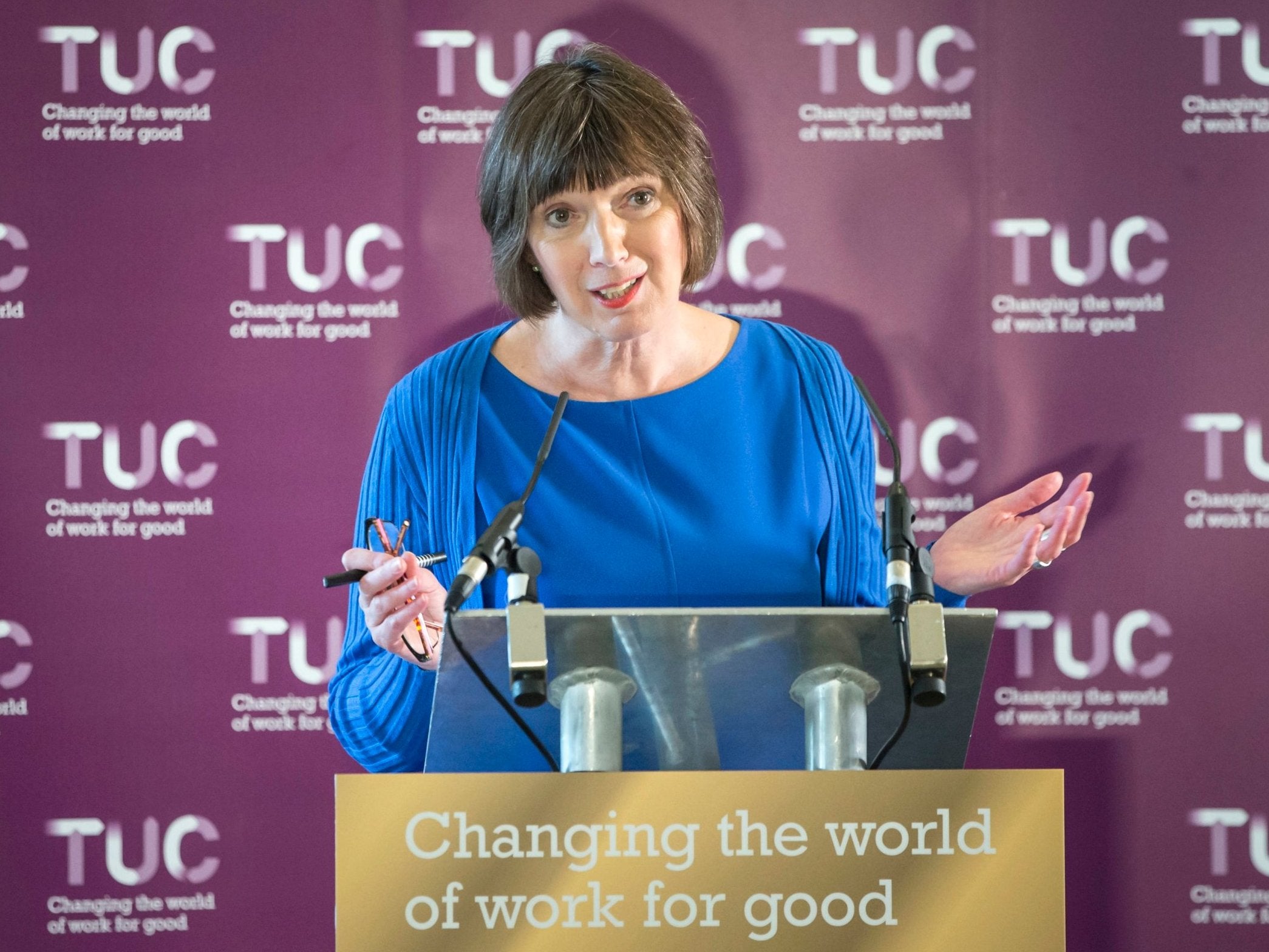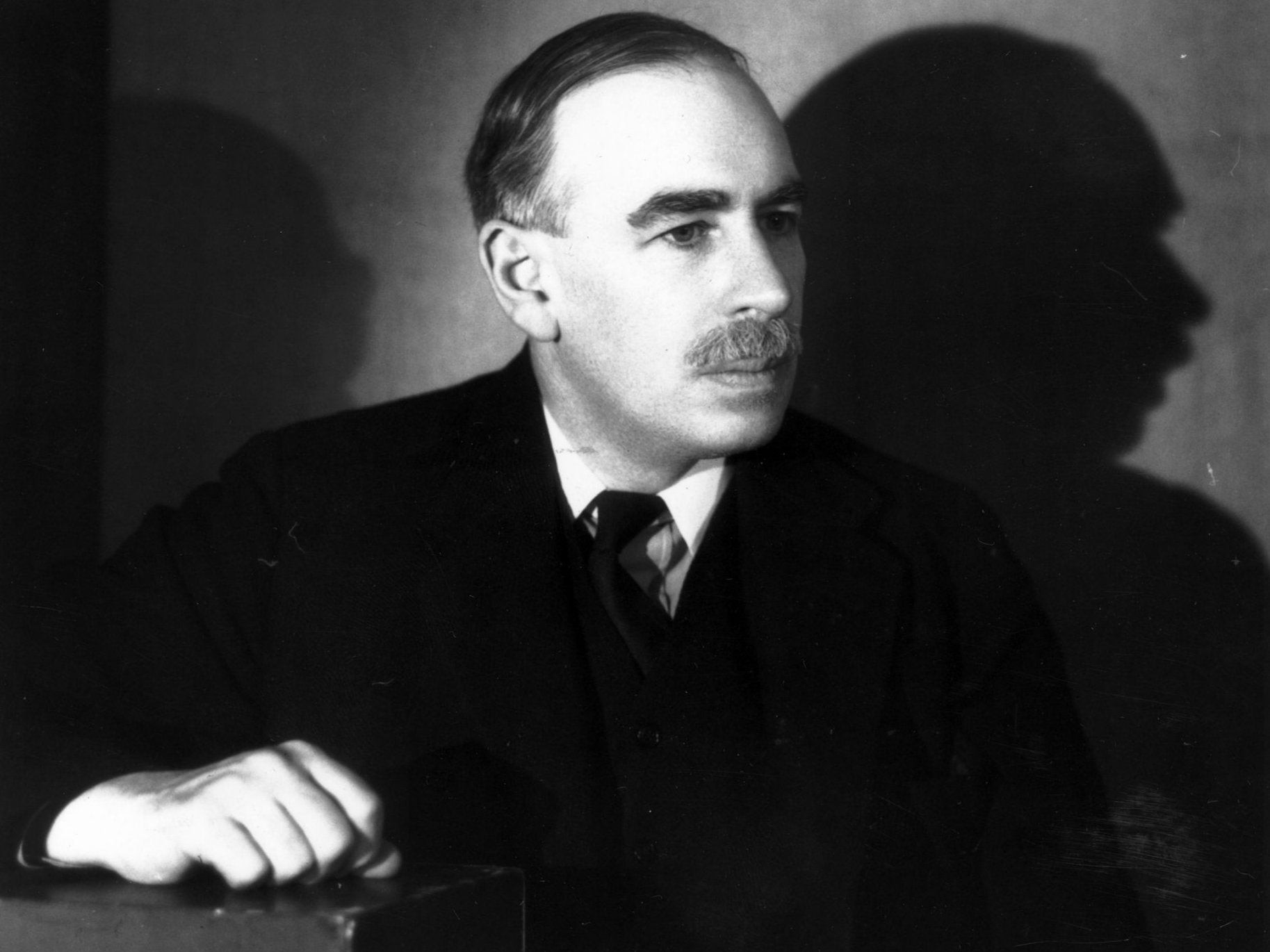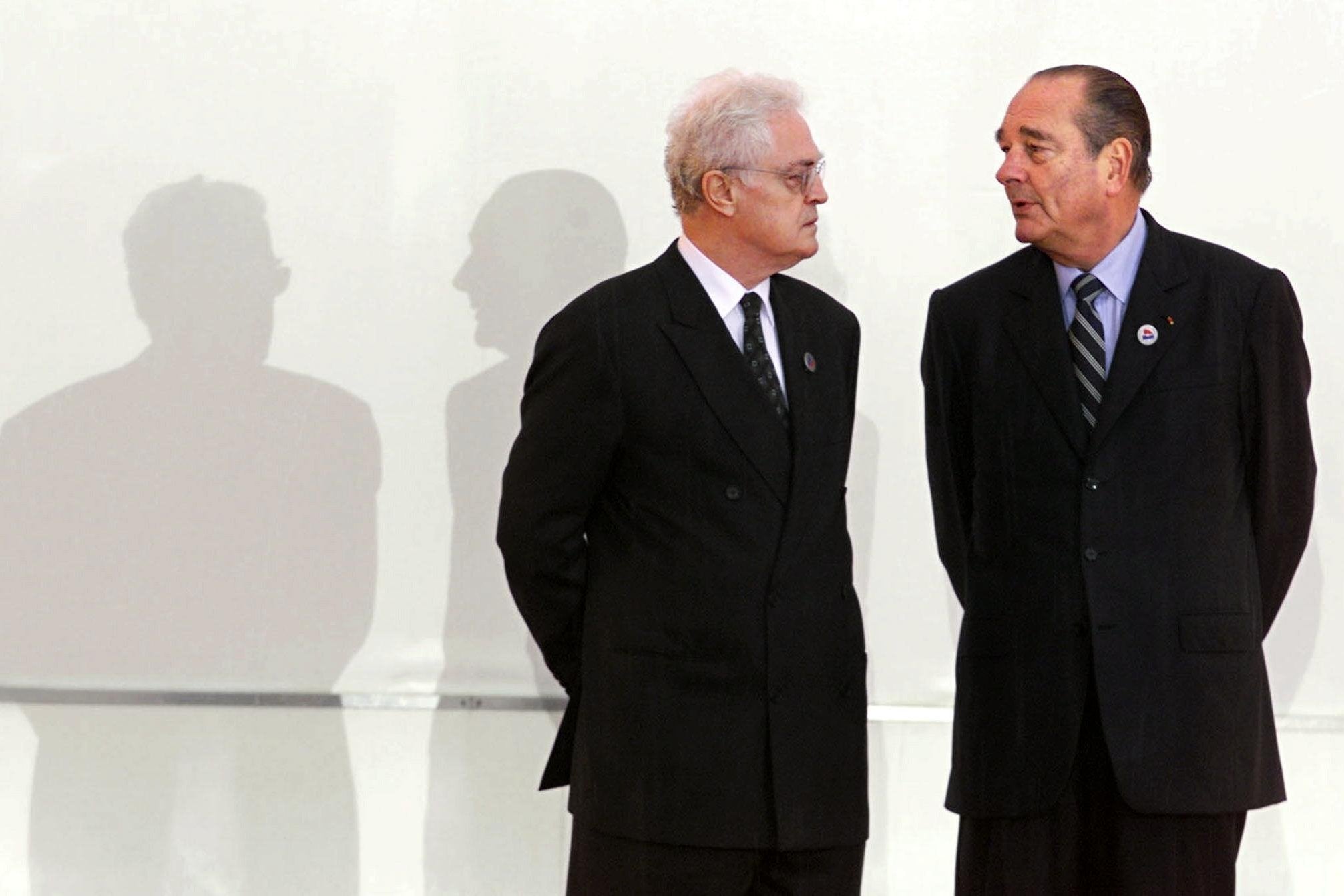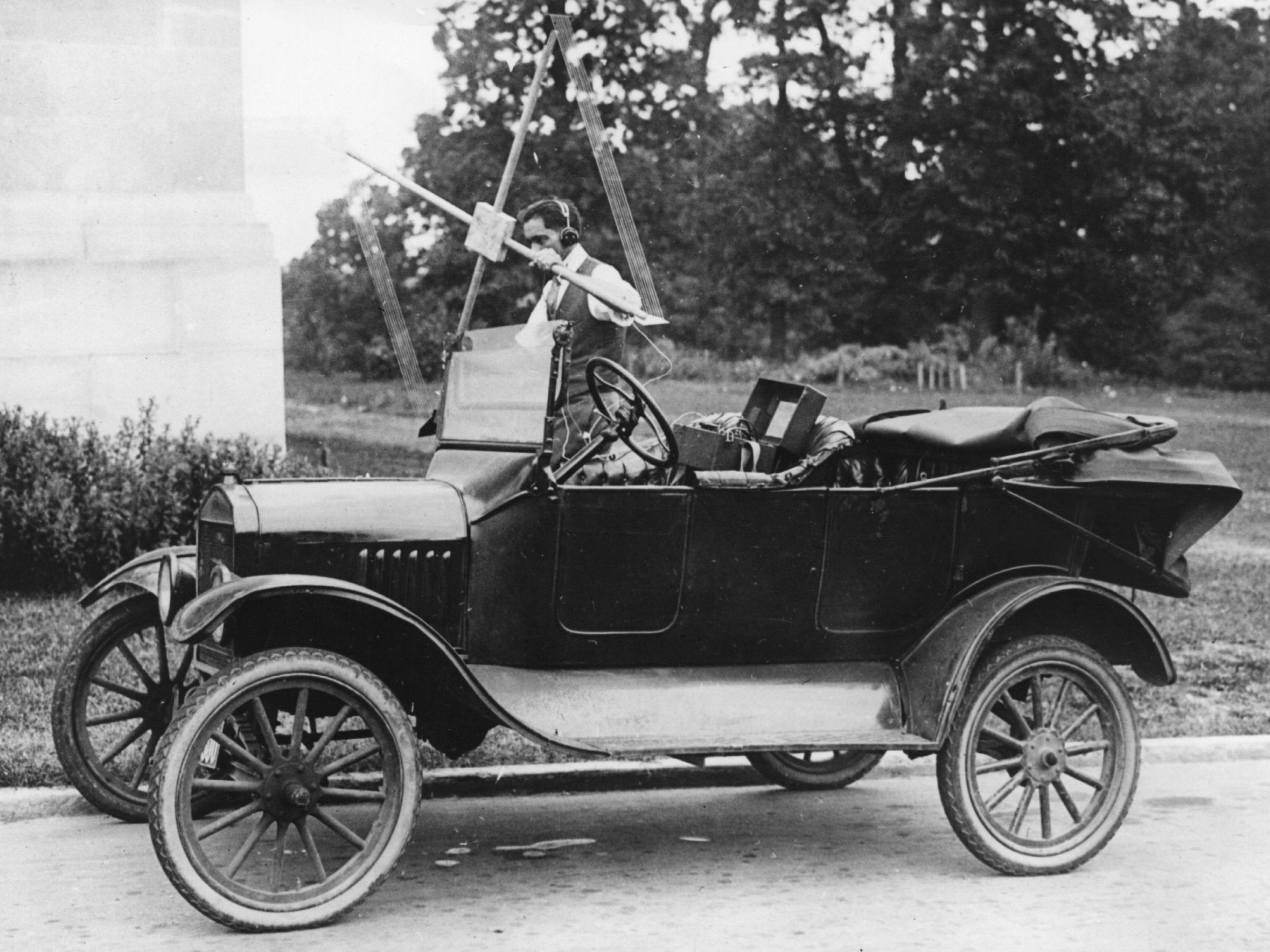The four-day working week: Careful what you wish for?
Is a shorter week a big idea whose time has come? Or is it an unworkable left-wing fantasy? Ben Chu investigates


As a society we can’t seem to make up our minds about work. Do we want more of it? Or less?
There’s a chilling fog of fear over what technological advances will mean for our jobs, with an endless supply of alarming forecasts about how robots and algorithms are set to displace human workers.
But there’s also a furnace of angst about low productivity and under-investment by firms in just the kind of innovations that induce those nightmares of a “jobs apocalypse”.
Some lament the supposed proliferation of pointless, soul-dismantling, “bullshit jobs”. Yet no one gets out the bunting when a struggling company announces redundancies.
The UK’s official labour market surveys suggest many of us want fewer hours at work, presumably driven by a desire for a healthier “work-life balance”.
Yet those same surveys also show that many people also want more hours, that the post-financial crisis curse of “underemployment” has not yet been lifted.
Some complain about the raising of the state retirement age and the depressing prospect of being forced to work longer than they planned. But for others the big problem is ageism, the risk of being pressured out of jobs they enjoy prematurely.
When it comes to work, we’re rather like those two diners in the Catskill mountains: “Boy, the food at this place is really terrible... Yeah, I know; and such small portions.”
Yet onto this terrain of confusion and apparent contradiction some stride confidently.
To Alex Williams, a Corbynite academic, automation should be embraced by the left as the emancipation of labour, provided the gains are comprehensively redistributed.

The Trades Union Congress seems to have been influenced by this cocktail of technological optimism and socialist assertion. Its general secretary Frances O’Grady recently demanded a four-day week by the end of the century, declaring: “Bosses and shareholders must not be allowed to hoover up all the gains from new tech for themselves.”
The Labour Party is keen too. The shadow chancellor John McDonnell has made favourable noises about the four-day week and is reported to be asking the crossbench peer, Robert Skidelsky, to head an inquiry into the subject.
Yet this isn’t just a British story. There are tectonic rumblings from abroad too. The IG Metall union in Germany earlier this year won the right to a four-day week for its almost 900,000 members. One technology start-up, founded by former Google employees, has a “Free Friday” policy. Even a think tank close to the authorities in China has called for the most populous nation on the planet to have a four-day working week as soon as 2030.
Any project that can unite German metal bashers, Silicon Valley coders and Chinese Communist apparatchiks clearly has an unusually wide appeal.
So is the four-day week a big idea whose time has come? Or is it an unworkable left-wing fantasy? And even if a four-day week is economically feasible, should we really desire it? Or is it a case of being careful what you wish for?
Productive possibilities
When Marei Wollersberger and her colleagues established an east London-based data design agency, Normally, as a four-day week operation in 2014, the motivation was largely personal.
“We wanted to lead happier lives basically – enjoy ourselves more, not just to defer our enjoyment to retirement age,” she told me.
But there was another goal: “There was also a motivation to be more productive.”
The economics of the four-day week revolve around the concept of productivity, the amount we produce per hour worked.
The size of the economy – the size of our national income – is derived from the value of all the goods and services produced by businesses and households.

On the face of it, if we all worked one less day a week, our personal output would drop by around fifth. Multiply that fall across the overall economy and you’ve got an economy that is considerably smaller, implying lower income and lower living standards for all, one way or another.
Yet what if working fewer hours were to stimulate our productivity? What if we produced more per hour working four days than we did per hour working five?
In that case there might be no overall drop in total output, and therefore no decrease in living standards. If our productivity rose enough we might even have a higher income than we did before.
Wollersberger says the model has worked in stimulating performance at her company. “You’re more productive – you achieve exactly the same or more in four days as you would in five,” she says. “And I honestly believe it’s better work.”
A New Zealand financial firm called Perpetual Guardian found similarly gratifying results when it trialled a four-day week recently.
“There was broadly no change in company outputs pre and during the trial,” said its boss. “No reduction in job performance and the survey data showed a marginal increase across most teams.”
Bear in mind that no change in output despite a fifth less time at work implies a stunning increase in productivity.
But beware cherry-picking. The results of a Swedish trial involving 70 nurses working a six-hour day were more mixed. While there was some boost to worker productivity, the city of Gothenburg also had to hire more nurses to cover the hours lost.
Intuitively, this seems much more likely to be the result of moving to a four-day week in services sectors that are, currently at least, heavily reliant on face-to-face human interactions such as healthcare or teaching.
That’s not to imply the shift in working patterns should be ruled out as impractical. There are benefits in terms of lower stress and happiness to set against those financial costs. But it’s probably unrealistic to expect the move to always pay for itself, at least in the short-term.
And some experiments have flopped. Treehouse, an online educational firm in Oregon, was one of those companies which got media publicity for its four-day week in 2015. But Treehouse’s founder recently lamented that the working practice killed the work ethic in his company and called the experiment a “terrible thing”.
The only way is down?
Individual “micro” trials are certainly useful, but they aren’t necessarily a reliable guide to “macro” economic impacts.
The closest thing that we have to a state-mandated four-day week is France’s 35-hour week, introduced in 2000 under the Jacques Chirac-Lionel Jospin cohabitation.

The first thing to bear in mind is that this does not mean all French people work a four-day week. The regulation simply means overtime kicks in after a worker has completed 35 hours and they accrue the right to holiday lieu days. Yet it does establish a social norm of fewer hours and a financial incentive for firms to limit them.
Opinions are mixed about its results. France has a high unemployment rate relative to the UK and other developed countries and it’s notable that Emmanuel Macron campaigned for president promising to increase the flexibility of the system.
And though the level of French productivity stands comparison with the most productive nations in the world, there’s no evidence that its growth rate has risen since it introduced the 35-hour week.
This might incline us to scepticism about the value of the the state having any role in limiting working hours.
Yet that could be the wrong conclusion. For the historic trend is clear. In the late 1900s, UK workers put in more than 2,500 hours a year on average. That’s down to 1,680 hours in 2017. There’s been a similar steep fall in other developed countries over the past century and a half.
That reflects the fact that the five-day working week, as opposed to six days with only Sunday off, only become standard practice in the 20th century.
It was the industrialist Henry Ford who was the pioneer in the US, giving his factory workers a five-day shift in 1926 while keeping their wages steady. This prefigured legislation and Congress’ 1938 Fair Labor Standards Act, which mandated a maximum 40-hour working week (effectively five working days).

We primarily think of John Maynard Keynes as the great promoter of employment for his pioneering theories on the economic benefits of government-funded job creation during the Great Depression.
But it was this secular decline in hours worked, despite the agonising surge in unemployment in the 1930s, that led Keynes to look forward to a 15-hour working week in The Economic Possibilities for our Grandchildren by the year 2000.
The question is whether the recent flattening out is the end of the decline in hours worked, or merely a pause. And is a government nudge necessary to get history moving again?
There’s also the question of consumption. One of the reasons Henry Ford instituted a five-day working week was revealed in a 1926 interview: “Leisure is an indispensable ingredient in a growing consumer market because working people need to have enough free time to find uses for consumer products, including automobiles.”
In other words, it was less a paternalistic concern for his workers’ well-being than a recognition that it would create help create more customers for Ford.

There’s an echo of this macroeconomic concern today, with government-linked Beijing researchers suggesting a four-day week could boost the domestic tourism and entertainment sectors and help rebalance the overall Chinese economy to consumption and away from excessive investment.
But perhaps the major economic question about moving towards a four-day week is whether it could somehow boost our long-term productivity growth rate (perhaps by inducing more investment in automation by firms) or whether a shorter working week could only ever be the fruits of productivity growth with an origin elsewhere.
The truth is that we don’t know the answer. Yet it’s vital to recognise that countries and societies have autonomy too, even now.
The US has a considerably larger GDP per capita than any developed country in Europe. But the bulk of this gap is due not to a vastly higher level of productivity but the fact that Americans, on average, work many more hours than the French, Germans or Swiss or British and so on.
The trade-off between work and leisure is different between our two continents. Both Europeans and Americans, by global and historical comparisons, have very comfortable standards of living. Choosing more leisure over extra working hours is not, whatever some might employers might argue, necessarily a route to penury and decline.
Doing nothing for ever and ever

The Victorian historian and essayist Thomas Carlyle believed in the redemptive power of work.
“A man perfects himself by working,” he enthused. “Foul jungles are cleared away, fair seed-fields rise instead, and stately cities ... Even in the meanest sorts of labour, the whole soul of a man is composed into a kind of real harmony the instant he sets himself to work.”
The (possibly apocryphal) epitaph on a Hertfordshire gravestone took a different view of the intrinsic value of hard labour.
“Here lies a poor woman who always was tired
For she lived in a place where help wasn't hired
Her last words on earth were, ‘Dear friends I am going
Where washing ain't done nor sweeping nor sewing
And everything there is exact to my wishes
For there they don't eat and there's no washing of dishes
Don't mourn for me now, don't mourn for me never
For I'm going to do nothing for ever and ever.”
One does not need to be a Carlyle-style work zealot to appreciate that there is some intrinsic psychological value to labour. Work is where many of us find not just an income, but friends, stimulation and status. But we can also see where that Hertfordshire washerwoman was coming from.
This dichotomy underlines that not all jobs are the same, or are experienced the same by the worker. For every occupation that that does help to clear away someone’s jungles of mental disorder there will be one that is felt as detestable drudgery.
One of the deficiencies of the debate over the four-day week, as with discussions of the appropriate retirement age, is a failure to acknowledge the vast diversity of both jobs and workers. Labour is not homogeneous.
Working until 70 might seem entirely reasonable, even desirable, to the university professor, the politician or the TV presenter. But to the cleaner, the firefighter or shop assistant – especially jobs with a physically arduous component – it may have considerably less appeal.
And so views diverge too on the desirability of the four-day week.
One of the most significant developments in the UK and broader Western economy over the past decade is the rise of the gig economy and self-employment. Around a sixth of the British workforce is now self-employed.
This was brought home to me recently when I met the Romanian father of one of the friends of my young son. The father had been a chauffeur for a wealthy family in Chelsea. But he’d resigned after his son had started school and had signed on with Uber so he could pick his lad up directly from school and shift his driving work to airport shuttle-runs at night instead. “I wanted the flexibility and my previous employer couldn’t provide that,” he told me, as we watched our boys career around the playground.
His work-life balance was not to be found in limiting the hours he worked (indeed he wanted to keep those the same or even increase them) but in the flexibility of his arrangements.
Survey evidence suggests this is a common story. The majority of Uber drivers like the personal control over their working hours made possible by the platform. Drivers who valued flexible working reported higher levels of life satisfaction, as well as lower levels of anxiety.

However, there was also a minority of Uber drivers who would prefer to work fixed hours in a more conventional work setting. And these workers reported lower levels of life satisfaction and higher levels of anxiety.
A question of representation
This brings us back to the apparent paradox of many people in the UK workforce wanting fewer hours but many others wanting more.
David Bell, a labour market economist from the University of Stirling whose work, along with Danny Blanchflower of Dartmouth College in the US, has highlighted this divergence, says that the groups who want fewer hours tend to be older, while those who are underemployed seem to be younger.
One of the implications is that younger people in the workforce may need the money from more hours because they are under greater financial pressure, perhaps because they have families, or perhaps because they have suffered a greater real wage squeeze since the financial crisis.
This suggests that Corbynite left is correct in stressing that to consider the economic and social case for a four-day in isolation is a mistake. Incomes plainly matter too, as well as the level of inequality.
One has to consider the role of income redistribution and employment policies. Give people higher incomes and more “outside options” for employment, perhaps through a jobs guarantee or even a universal basic income, and the desire for extra hours in their current job may well melt away. They may begin to make different work-leisure trade-offs than they do now.
Perhaps one of the reasons why we see some people languish in ultra-flexible gig economy jobs they don’t appreciate – like those disgruntled Uber drivers – is that, despite what most economic analysts say, there is actually hidden slack in our economy – and that if the slack was eradicated they could find the kind of regular job they wanted elsewhere.
But that still leaves a circle to be squared, presuming that different people, all else equal, are still likely to put different weights on work and leisure. How do we give those who would prefer a four-day week more freedom to choose it, while protecting the interests of those who don’t?
The empowerment of ordinary workers is Professor Bell’s answer. Let individual employees have substantive input into determining the trade-off, rather than leaving it up to politicians or employers.
“One of the things that might help is a strengthening of worker representation, which has declined so dramatically,” he says. “Rather than jumping in to impose a four-day week you want to think first about whether workers’ interests are being properly represented.”
This would be going with the historical grain, given the driving role of new trade unions in the achievement of an eight-hour working day in the 19th century and early 20th century.
It’s notable not only that IG Metall workers in Germany this year were able to achieve a four-day working week through negotiation with bosses – but that they also had sufficient bargaining power to protect their overall levels of weekly pay.
Satisfying old Adam
A fundamental question that underpins this broad discussion about the future of working hours is a philosophical one: what makes us happy and fulfilled as human beings?
Modern psychological studies do partially back up Carlyle’s Victorian pompous sermonising: formal work can be as positive for human happiness as leisure, sometimes more so.
A job does seem to bring a valuable sense of social usefulness. Involuntary unemployment is clearly harmful for people’s mental health.
But how much work do we want or need? Keynes in the 1930s called this desire for work “old Adam” and predicted that three hours a day in the future would be “quite enough to satisfy” this inherited instinct.
Perhaps the right thing to do is not to dictate to people, or engage in speculation on what the future of work will look like, but rather to help them decide for themselves.
Join our commenting forum
Join thought-provoking conversations, follow other Independent readers and see their replies
Comments